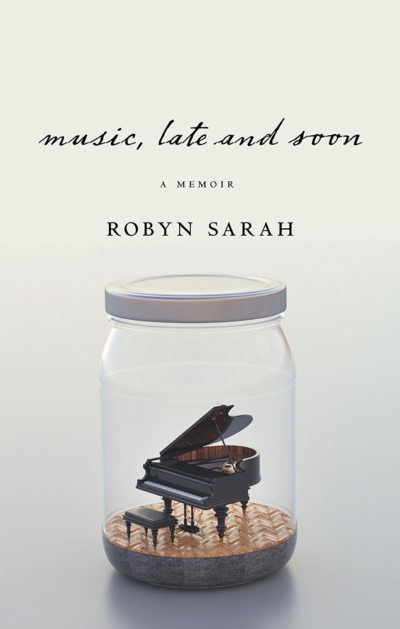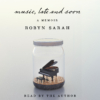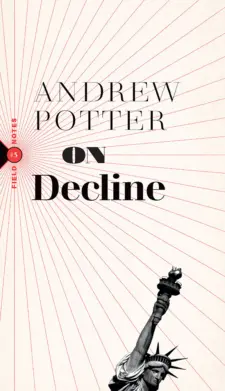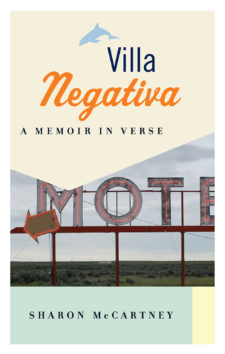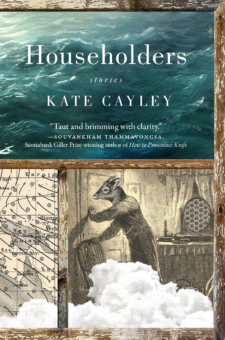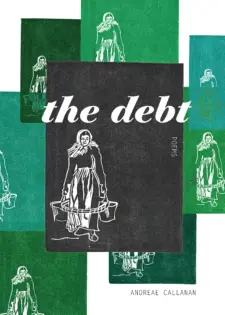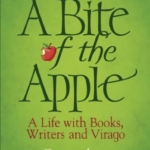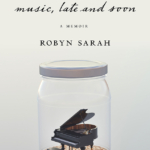Description
Shortlisted for the J.I. Segal Awards Best Quebec Book on a Jewish Theme • Shortlisted for the The Mavis Gallant Prize for Non-Fiction
A poet rediscovers the artistic passion of her youth—and pays tribute to the teacher she thought she’d lost.
After thirty-five years as an “on-again, off-again, uncoached closet pianist,” poet and writer Robyn Sarah picked up the phone one day and called her old piano teacher, whom she had last seen in her early twenties. Music, Late and Soon is the story of her return to studying piano with the mentor of her youth. In tandem, she reflects on a previously unexamined musical past: a decade spent at Quebec’s Conservatoire de Musique, studying clarinet—ostensibly headed for a career as an orchestral musician, but already a writer at heart. A meditation on creative process in both music and literary art, this two-tiered musical autobiography interweaves past and present as it tracks the author’s long-ago defection from a musical career path and her late re-embrace of serious practice. At its core is a portrait of an extraordinary piano teacher and of a relationship remembered and renewed.
You can read an interview with the author here.
Audiobook read by the author.
PRAISE FOR MUSIC, LATE AND SOON
“A deeply intimate exploration of the artistic process by a writer of remarkable maturity and poise. Unfailingly, her prose remains centred, rooted in humility, never drawing attention to itself. Her every word feels thoughtful, honest, and true. With this book, Sarah demonstrates that a life pursued artistically, when done so with sincerity and integrity, is a life lived spiritually, no matter what the discipline. Concert halls might be poorer for her career choice, but the literary world can count itself richly blessed.”
—Juror Statement for The Mavis Gallant Prize for Non-Fiction
“Her book is a gift to anyone who has left behind a pursuit and second-guessed that decision, though few of us could hope to have a teacher as inspirational as [hers] to coax us back into following our early passions. Describing their reunion, she writes: ‘Momentarily, I’m flooded with that remembered sense of being in touch with something age-old, precious, mysterious, and profound (…).’ It’s this profundity, the deep meaning of music, that Sarah captures so well in her beautiful and uplifting story.”
—Montreal Review of Books
“[Y]ou don’t need to be a musician, nor do you need to have aspired to be a musician, to appreciate Music, Late and Soon. Anyone who has ever felt a vocation for something, pursued it, misplaced it, then tried to summon it again is apt to identify with Sarah’s story.”
—Montreal Gazette
“Deeply interdisciplinary and challenging, it bears intimate witness as the internationally acclaimed Montréal poet reckons with the parallel strands of music and writing interwoven through her creative and inner lives.”
—Montreal Serai
“Robyn Sarah’s memoir of a (more and less) musical life . . . is a luxuriant pleasure to read, due to the care for language and rhythm infuses it.”
—Canadian Literature
“Part sonata, part symphony, far more than a memoir, Music, Late and Soon introduces a number of memorable characters worthy of a novel, and an array of orchestral instruments that modulate the prose, melodies, and personalities surrounding the author’s life”
—Miramichi Reader
“It is a luxury to read a memoir about music written by an excellent writer who happens to have spent the greater part of her life as a musician.”
—Musical Assumptions
“A heart-storming memoir . . . [Music, Late and Soon] is an immeasurably rich book, and a complicated human story, in which Robyn Sarah’s writing is in full flight. It deserves a standing applause . . . I’ve no doubt it will be gratefully received and recognized as an original illumination of the struggle to claim one’s own.”
—William Aide (concert pianist, teacher, writer)
“In this historic moment, a book about the courage required to reclaim and salvage creative desire through discipline is about as necessary as clean water and air.”
—Michael Lithgow, author of Who We Thought We Were as We Fell
PRAISE FOR ROBYN SARAH
“As in her poetry, spare colloquial surfaces carry hidden depths . . . subtle and suggestive, working on several levels at once.”
—Globe and Mail
“Visual clarity, no-nonsense voice, compressed language, rhythmic prowess, and metaphoric agility. These qualities speak from a long-cultivated focus and bespeak a writer who pays fierce attention to the basic fact of being in the world.”
—Anita Lahey, The Walrus
“Sarah knows the language: its pressure points, its traditions, its crevices. Trained as a musician, she also understands flow and timing, when to sing and when to keep silent.”
—Montreal Gazette
“Robyn Sarah shows a masterly regard for how we all try to explain our existence to ourselves, and the wonder at the mystery of any human life . . . She presents contradictions in every human bond and reveals the almost miraculous way such bonds are forged.”
—Ottawa Citizen
“Her distinctively digressive style allows Sarah to accommodate tremendous complexity in her stories . . . drawing us further and further down into the moment and at the same time showing us how the moment is textured by memory and experience.”
—The Malahat Review
“[Her stories] lead us towards, and finally right into the middle of awarenesses that we hadn’t had before. They leave you feeling like this: suspicious that you’ve missed something, teeth slightly on edge . . . there is a faint sound of excellently played music somewhere . . . one may be failing in what one wants to do. What did that little piece mean? Will I read it again? The reader reads it again and experiences this network of feelings again, just like the first time. It is very powerful art.”
—Hugh Hood
“[Her poems] illuminate the reader’s privacy without destroying the poet’s. And elegant play is going on even in the most acutely painful moments of clarity, a play of pure energy.”
—Margaret Avison
“So assured and musical is the hand that shaped them that these poems tend to memorize themselves, as though they had always formed part of our experience.”
—Eric Ormsby

